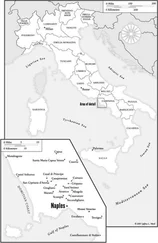Eric Ambler - Journey Into Fear
Здесь есть возможность читать онлайн «Eric Ambler - Journey Into Fear» весь текст электронной книги совершенно бесплатно (целиком полную версию без сокращений). В некоторых случаях можно слушать аудио, скачать через торрент в формате fb2 и присутствует краткое содержание. Год выпуска: 1940, ISBN: 1940, Издательство: Knopf, Жанр: Шпионский детектив, на английском языке. Описание произведения, (предисловие) а так же отзывы посетителей доступны на портале библиотеки ЛибКат.
- Название:Journey Into Fear
- Автор:
- Издательство:Knopf
- Жанр:
- Год:1940
- ISBN:9780307949967
- Рейтинг книги:5 / 5. Голосов: 1
-
Избранное:Добавить в избранное
- Отзывы:
-
Ваша оценка:
- 100
- 1
- 2
- 3
- 4
- 5
Journey Into Fear: краткое содержание, описание и аннотация
Предлагаем к чтению аннотацию, описание, краткое содержание или предисловие (зависит от того, что написал сам автор книги «Journey Into Fear»). Если вы не нашли необходимую информацию о книге — напишите в комментариях, мы постараемся отыскать её.
Journey Into Fear — читать онлайн бесплатно полную книгу (весь текст) целиком
Ниже представлен текст книги, разбитый по страницам. Система сохранения места последней прочитанной страницы, позволяет с удобством читать онлайн бесплатно книгу «Journey Into Fear», без необходимости каждый раз заново искать на чём Вы остановились. Поставьте закладку, и сможете в любой момент перейти на страницу, на которой закончили чтение.
Интервал:
Закладка:
She was sitting on one of the banquettes watching José and Banat playing cards. Her hands were on the edge of the seat and she was leaning forward, her lips parted slightly, her hair falling across her cheeks. There was something about the pose that reminded him of the moment, years ago it seemed, when he had followed Kopeikin into her dressing-room at Le Jockey Cabaret. He half expected her to raise her head and turn towards him, smiling.
He realized suddenly that he was seeing her for the last time, that before another day had passed he would be for her merely a disagreeable memory, someone who had treated her badly. The realization was sharp and strangely painful. He told himself that he was being absurd, that it had always been impossible for him to stay with her in Paris and that he had known it all along. Why should the leave-taking trouble him now? And yet it did trouble him. A phrase came into his head: “to part is to die a little.” He knew suddenly that it was not Josette of whom he was taking his leave, but of something of himself. In the back streets of his mind a door was slowly closing for the last time. She had complained that for him she was just a part of the journey from Istanbul to London. There was more to it than that. She was part of the world beyond the door: the world into which he had stepped when Banat had fired those three shots at him in the Adler-Palace: the world in which you recognised the ape beneath the velvet. Now he was on his way back to his own world; to his house and his car and the friendly, agreeable woman he called his wife. It would be exactly the same as when he had left it. Nothing would be changed in that world; nothing, except himself.
He went on down to his cabin.
He slept fitfully. Once he awoke with a start, believing that someone was opening the door of his cabin. Then he remembered that the door was bolted and concluded that he had been dreaming. When next he awoke, the engines had stopped and the ship was no longer rolling. He switched on the light and saw that the time was a quarter past four. They had arrived at the entrance to Genoa harbour. After a while he heard the chugging of a small boat and a fainter clatter from the deck above. There were voices too. He tried to distinguish Mr. Kuvetli’s among them, but they were too muffled. He dozed.
He had told the steward to bring coffee at seven. Towards six, however, he decided that it was useless to try to sleep any more. He was already dressed when the steward arrived.
He drank his coffee, put the remainder of his things in his case and sat down to wait. Mr. Kuvetli had told him to go into the empty cabin at eight o’clock. He had promised himself that he would obey Mr. Kuvetli’s instructions to the letter. He listened to the Mathis arguing over their packing.
At about a quarter to eight the ship began to move in. Another five minutes and he rang for the steward. By five to eight the steward had been, received with barely concealed surprise fifty lire, and gone, taking the suitcase with him. Graham waited another minute and then opened the door.
The alleyway was empty. He walked along slowly to number four, stopped as if he had forgotten something, and half turned. The coast was still clear. He opened the door, stepped quickly into the cabin, shut the door, and turned round.
The next moment he almost fainted.
Lying across the floor with his legs under the lower berth and his head covered with blood, was Mr. Kuvetli.
CHAPTER ELEVEN
Most of the bleeding seemed to have been caused by a scalp wound on the back of the head; but there was another wound, which had bled comparatively little and which looked as if it had been made with a knife, low on the left side of the neck. The movements of the ship had sent the slowly congealing blood trickling to and fro in a madman’s scrawl across the linoleum. The face was the colour of dirty clay. Mr. Kuvetli was clearly dead.
Graham clenched his teeth to prevent himself retching and held on to the washing cabinet for support. His first thought was that he must not be sick, that he must pull himself together before he called for help. He did not realise immediately the implications of what had happened. So that he should not look down again he had kept his eyes fixed on the porthole and it was the sight of the funnel of a ship lying beyond a long concrete jetty that reminded him that they were going into harbour. In less than an hour the gangways would be down. And Mr.
Kuvetli had not reached the Turkish Consulate. The shock of the realisation brought him to his senses. He looked down.
It was Banat’s work without a doubt. The little Turk had probably been stunned in his own cabin or in the alleyway outside it, dragged out of sight into this, the nearest empty cabin, and butchered while he was still insensible. Moeller had decided to dispose of a possible threat to the smooth working of his arrangements for dealing with the principal victim. Graham remembered the noise which had awakened him in the night. It might have come from the next cabin. “Do not leave your cabin under any circumstances until eight o’clock the following morning. It might be dangerous.” Mr. Kuvetli had failed to take his own advice and it had been dangerous. He had declared himself ready to die for his country and he had so died. There he was, his chubby fists clenched pitifully, his fringe of grey hair matted with his blood and the mouth which had smiled so much half open and inanimate.
Someone walked along the alleyway outside and Graham jerked his head up. The sound and the movement seemed to clear his brain. He began to think quickly and coolly.
The way the blood had congealed showed that Mr. Kuvetli must have been killed before the ship had stopped. Long before! Before he had made his request for permission to leave by the pilot boat. If he had made the request, a thorough search for him would have been made when the boat came alongside and he would have been found. He had not yet been found. He was not travelling with an ordinary passport but with a diplomatic laisser passer and so had not had to surrender his papers to the Purser. That meant that unless the Purser checked off the passenger list with the passport control officer at Genoa-and Graham knew from past experience that they did not always bother to do that at Italian ports-the fact that Mr. Kuvetli did not land would not be noticed. Moeller and Banat had probably counted on the fact. And if the dead man’s baggage had been packed, the steward would put it in the Customs shed with the rest and assume that its owner was lying low to avoid having to give a tip. It might be hours, days even, before the body were discovered if he, Graham, did not call anyone.
His lips tightened. He became conscious of a slow cold rage mounting in his brain, stifling his sense of self-preservation. If he did call someone he could accuse Moeller and Banat; but would he be able to bring the crime home to them? His accusation by itself would carry no weight. It might well be suggested that the accusation was a ruse to conceal his own guilt. The Purser, for one, would be glad to support that theory. The fact that the two accused were travelling with false passports could, no doubt, be proved, but that alone would take time. In any case, the Italian police would be amply justified in refusing him permission to leave for England. Mr. Kuvetli had died in trying to make it possible for him to reach England safely and in time to fulfil a contract. That Mr. Kuvetli’s dead body should become the very means of preventing the fulfilment of that contract was stupid and grotesque; but if he, Graham, wanted to be sure of saving his own skin, that was what must happen. It was strangely unthinkable. For him, standing there above the dead body of the man whom Moeller had described as a patriot, there seemed to be only one thing of importance in the world-that Mr. Kuvetli’s death should be neither stupid nor grotesque, that it should be useless only to the men who had murdered him.
Читать дальшеИнтервал:
Закладка:
Похожие книги на «Journey Into Fear»
Представляем Вашему вниманию похожие книги на «Journey Into Fear» списком для выбора. Мы отобрали схожую по названию и смыслу литературу в надежде предоставить читателям больше вариантов отыскать новые, интересные, ещё непрочитанные произведения.
Обсуждение, отзывы о книге «Journey Into Fear» и просто собственные мнения читателей. Оставьте ваши комментарии, напишите, что Вы думаете о произведении, его смысле или главных героях. Укажите что конкретно понравилось, а что нет, и почему Вы так считаете.












